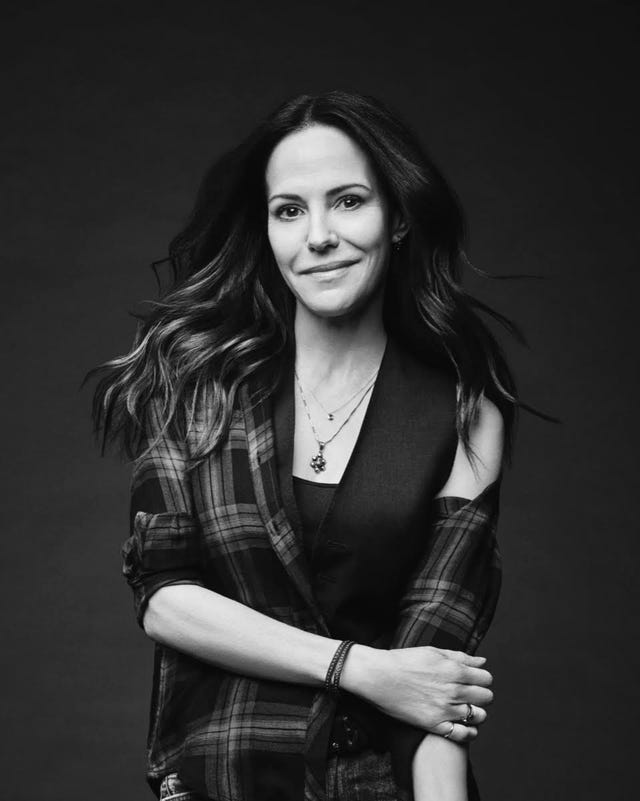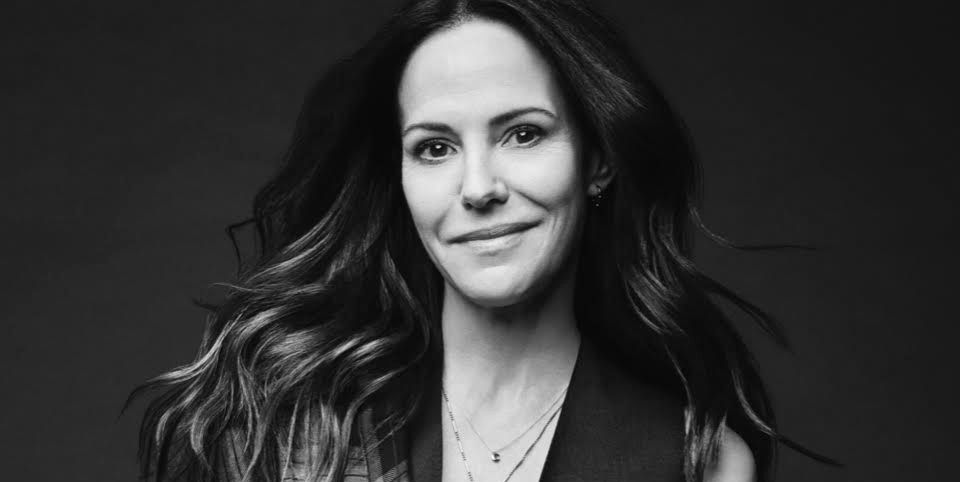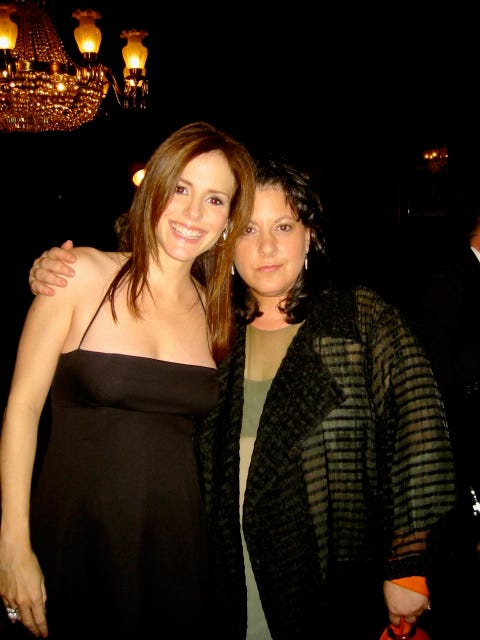
Courtesy Mary-Louise Parker
She would have read this first.
So many times, when I finished writing something, I either sent it to her or dumped it in the trash. Technically, she kept me from throwing away much of my life after trying to make sense of it on paper.
She won’t be reading this one.
I’m not the first to complain about what COVID took from me. I miss the air on my face and exhaling without my glasses fogging up. My heart breaks for my sister, who’s yet to hold her first grandchild, but most of what I lost were things I was lucky to have in the first place. I can let them go for now. Except one.
I have no idea where I am without my friend Debra.
Debra was the wizard of 22nd Street. She had tricks up her sleeve, an extra set of eyes and ears, and a secret map to the rarest treasures on the island of Manhattan. If you were in search of the best version of anything, you called her first, where you might be met with instructions like: “Go to the corner of 126th and Amsterdam. Look for the unmarked yellow door guarded by a man with a one-legged dog. Tell him you know Blue.”
My confidant of thirty-five years, she was entrusted with my deepest secrets and vice versa. I called her when I was lost, logistically or otherwise. When I suffered nightmares for a time, she’d stay on the phone with me until I fell asleep mid-sentence. “Empathic” feels too weak a word for a woman who listened like a sage and remembered all the details of your life, who took on your pain and disappointment as though it were hers. If she wasn’t flush with funds, she’d wrap up some treasure of her own and give it to you. There was nothing like the gift of a few hours with her, retelling stories from the past, and no one more ready to scrap her plans to support a worthy cause.
She spent many of her last days protesting the tragic execution of Nathaniel Woods, and I won’t forget her voice breaking in disbelief when he’d been put to death. It was her stark amazement in the face of human cruelty that endeared me to her; a refusal to accept unfairness, and that, in concert with her neon hopefulness, gave her a childlike quality. She was brilliant and sophisticated, but not entirely a grown up. All of that kept her magnetic and sparkly, and maybe part of why so many fabulous people wanted her around—legendary jazz musicians, writers, and artists in every medium. If it sounds like a life of charm, I’ll admit it sometimes was, with her being on so many invite lists, but I can think of no one more deserving of a seat in any performance space. If you saw her at an opening, she was the woman whose face lit up as the lights went down, ready and aching to be transported.
Debra was my New York City. She taught me the light schedule that transformed the Flatiron at magic hour. She loved fancy food but would eat from any corner cart. She lived for late night parlor games and robust Italian reds and all things Patti Smith. I can’t process a Manhattan without her.
I’ve tried to name what she had that made her so lovable, and I think it was her masterful ability to love. She’d take on your heartbreak like it was hers and celebrate your victories with such enthusiasm, she’d get you more excited for yourself. It was a contagious, outsize sense of joy. As much as not having her here, I can’t fathom that a woman who was such a magician at celebrating others was never honored with a proper funeral. There will need to be a day for that.
There’s more to the story about the day she died, but there exists for me the inevitability of a heart that beat so mightily on behalf of others ultimately wearing itself down. Fitting, too, that a woman who held tight to her childlike sense of celebration and hopefulness would die of a heart attack while answering the door on her birthday. I can follow all of it up until the moment where she doesn’t come back to help me process it.
Debra Joy Kletter: Life was much less scary for me knowing you were right there on 22nd Street, and that no matter what, you’d stand up for me, and by me. I’m so used to you helping me understand things. How can you not be here? I feel like the world has retired a primary color. No one will take your place or even be allowed to hang out in the spot you occupied. Save me a seat where you are, too? With Norman and the dogs and my Dad. I have so much to tell only you.
For now, I’ll need to be satisfied with re-reading your letters and messages. You were such a beautiful writer. I found one passage I keep going back to. You were on the street when you saw something you wanted to photograph for me, but the moment slipped away with an odd sensation as you were pulled in another direction. You wrote:
it was like when you’re standing on the edge of the sand by the ocean and you start to lose your sense of terra firma
as the water torques the sand below your feet.
that’s what it felt like, a little dizzying, and surrendering to the pull
This story is part of ELLE’s Lost and Found: One Year in Quarantine. Click here to read all the stories in this package.
This content is created and maintained by a third party, and imported onto this page to help users provide their email addresses. You may be able to find more information about this and similar content at piano.io

